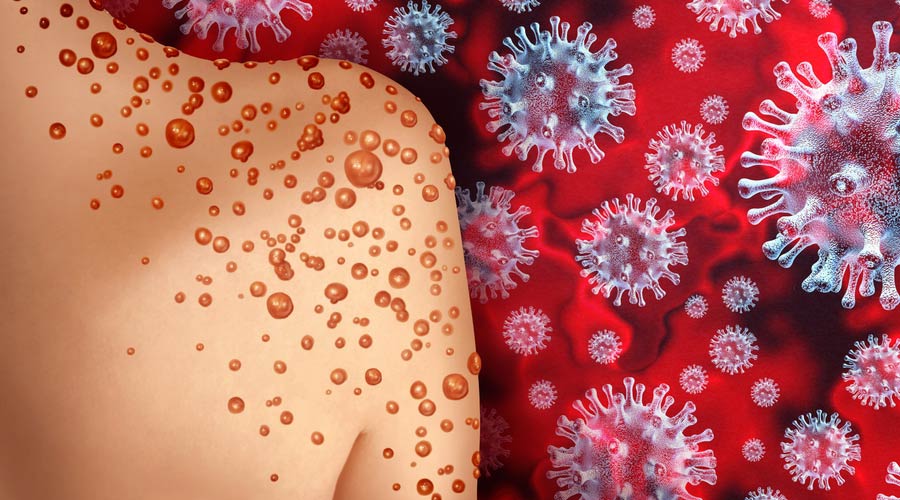Health authorities across the United Kingdom on Tuesday issued updated guidance for anyone with symptoms to refrain from having sex as part of efforts to contain the spread of monkeypox.
The UK Health Security Agency (UKHSA) issued the guidance along with authorities in Scotland, Northern Ireland and Wales as a further 71 cases were identified in England this week, taking the total in the UK to 179.
Under the guidance, people with monkeypox are also urged to avoid close contact with others until their lesions have healed and any scabs have dried off.
We are reassuring people that monkeypox does not usually spread easily between people, and the overall risk to the general public is low, said Indian-origin Dr Giri Shankar, Director of Health Protection for Public Health Wales.
We are working with the UK Health Security Agency, Public Health Scotland, and Public Health Agency Northern Ireland to develop this guidance, which will ensure that healthcare staff in Wales have the best and most up-to-date knowledge on the management of monkeypox cases, he said.
People who have tested positive for the virus and their close contacts are being told to isolate at home for 21 days.
The advice is to look out for any new rashes or lesions, which would appear like spots, ulcers or blisters, on any part of their body.
The latest guidance says that while there is currently no available evidence that monkeypox can be spread through sexual fluids, people confirmed to have the virus are advised to use condoms for eight weeks after infection as a precaution.
The UKHSA said that although this advice applies to everyone, the majority of the cases identified to date have been among men who are gay and bisexual.
So, we are asking these people in particular to be aware of the symptoms, particularly if they have recently had a new sexual partner, the UKHSA said.
If anyone suspects they might have these symptoms, particularly if they have recently had a new sexual partner, they should limit their contact with others and contact NHS 111 or their local sexual health service as soon as possible, though please phone ahead before attending in person. This will help us limit the virus being passed on, said Dr Ruth Milton, Senior Medical Advisor at UKHSA.
The health authority said it has also purchased over 20,000 doses of a safe smallpox vaccine called Imvanex, which is being offered to identify close contacts of those diagnosed with monkeypox to reduce the risk of symptomatic infection and severe illness.
According to the UKHSA, monkeypox is a viral zoonotic disease that occurs primarily in Central and West Africa.
There are two clades of monkeypox a Central African clade with a reported mortality of 10 per cent and a West African clade with a reported mortality of 1 per cent from epidemiological clusters and outbreak reports from Africa.
Community transmission is occurring in the UK with multiple generations of spread. Illness appears to be generally mild, consistent with other information about the West African clade, it notes.
Within the UK it is classified as a high consequence infectious disease for National Health Service management, particularly to enable early identification and prevention of spread.
Symptoms include a high temperature, aches, and a rash of raised spots that later turn into blisters and for most people clear up within two to four weeks.
A person is considered at high risk of having caught the infection if they have had household or sexual contact with, or have changed the bedding of an infected person without wearing personal protective equipment.











